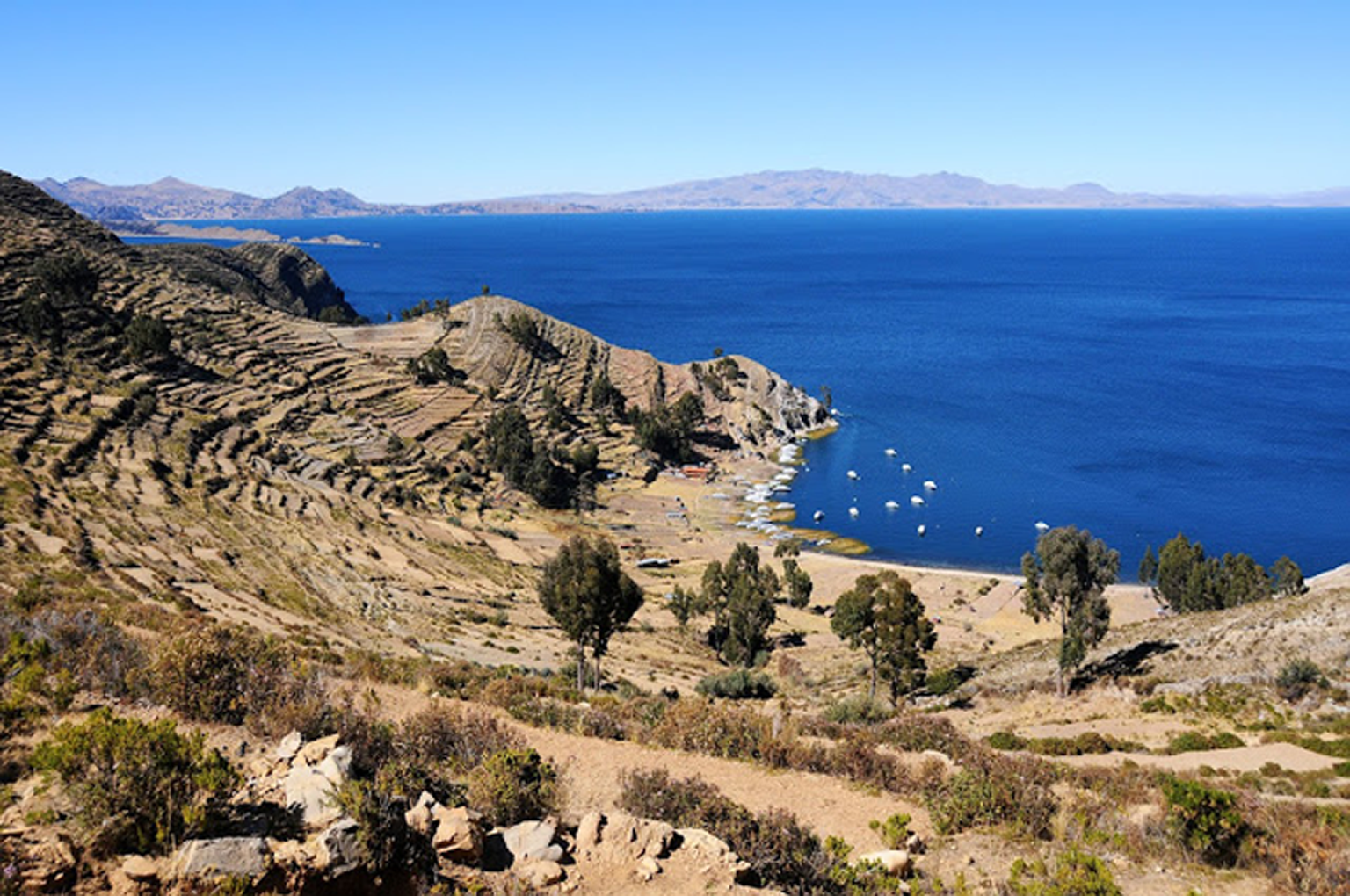- Posted by:
- anjci
- Under:
- Balkans, Travel tales, Travel: Greece
I didn’t quite finish expressing myself on Greece in my first “Illusions no more” piece: https://anjci.com/greece-illusions-no-more/. Let this come as a (surely long-awaited) continuation.
As the summer passes by, I both miss Greece more as a holiday destination – and dread it more as a permanent living base. It is interesting how, at the end of the day, it is small and seemingly meaningless things which test one’s tolerance. I apologise to all Greeks for the lack of true substance in this note. The view expressed here remains highly subjective and entirely unrelated to my appreciation of Greece as a dream getaway spot. Having said that, I could never live with any of the following, separately or in any possible combination…
> Frappe. That famous iced drink made of instant coffee and offered by every self-respecting Greek establishment. Seriously, this dry definition does little justice to how disgusting and undrinkable that stuff really is. The instant coffee component is too bitter for any normal human to handle, so tonnes of sugar are added to compensate. What you get is a liquid mass of questionable colour, loaded with instant coffee and sugar. Sounds healthy? I didn’t think so. Somehow I always failed to understand how a country with a wonderful coffee tradition (take Turkish, oops, Greek coffee) managed to slide all the way into the frappe decadence. Nescafe must be making a fortune there. If I ever live in Greece again, I will front-lead an anti-Nes campaign. I am serious.
> Prices. Were those high or what! A mere coffee in a sit-down location could lighten the purse by as much as five euros. A feeble argument I once heard was that the price included renting out a chair and table for the unlimited period of time to sip your coffee for! All that in a country with average wage levels trailing way below the EU 15 average. With regards to supermarket prices, I found those outrageously above my UK benchmark, with the complete absence of classic sale offers so common on my side of the Channel (“2 for 1”, “buy one get one half-price”, etc). Meal prices in Athenian restaurants were very much comparable to London, though I would not say the same about provincial Greece. Clothes’ prices were no different to most European capitals. I refuse to understand how Greeks survive in a country with prices so disproportionably high compared to the population’s mediocre wage levels. My only theory is that (i) black market steps in where legal wages fail and (ii) most young population lives off their parents. The latter was confirmed on numerous occasions. The most extreme case in my memory was a 39-year-old man still living with his mother. A friend of mine once expressed sympathy for “poor Giorgos who does not seem to be very lucky with women”. I had not laughed so hard for a while.
> Neighbour relations. Seriously, aren’t Greeks able to like at least ONE of their country’s neighbours? Take Turkey. Arisen from the shackles of the former Ottoman Empire, Turkey could never be too popular. Both sides frequent each other’s national waters and air space. A number of bilateral conflicts remain unresolved, with Northern Cyprus issue not making things any easier. Some Greeks explode at the use of international names for Turkish cities which once belonged to Byzantium. Istanbul is Konstantinoupoli and Izmir is Smyrni, emphatically. Also, on multiple occasions, I was exposed to an educational story how the Greek culture was “too strong” to absorb anything from the occupants, and instead had the occupants absorb the entire Greek culture. Over 400 years of occupation. Seriously, guys. Get real for once.
Now consider the hapless little Slavic republic to the north of Greece. With a name dispute dragging along for decades, Macedonia – or FYROM – is currently not too fond of its large southern neighbour. Greece is not the only one to blame here. I am not sure how Macedonia magically manages to take every single stab at annoying Greece. The Macedonian segment of the main highway connecting the two countries was named after Alexander the Great, whom both Athens and Skopje treat as their national hero. The ancient warrior and his father Philip II were likewise immortalised in the names for Skopje’s international airport and main sports arena, respectively. Not the smartest moves by a fragile nation desperately seeking its identity.
The Greek side reciprocates in full, measures including a ban on Macedonian aircraft to enter Greece’s skies (even if Macedonian president is inside), refusal to recognise Macedonian minority within Greece’s borders (other than as Bulgarian) and Greece’s veto for Macedonia to join the NATO (even as FYROM). The burden to sort out the current mess definitely spans both sides of the border.
Albania and Bulgaria are easier cases (minus the life-long Northern Epyrus dispute). I have only been exposed to very limited moaning about “sneaky Albanians coming here to steal our jobs, as well as everything else lying unguarded” and “Bulgarian fishermen crossing the border daily to fish in our lakes”. The only countries Greeks remotely seem to like are Russia and Serbia. I can only conclude with the words of a good friend of mine, who once said that the only reason for any Eurovision country to vote for Greece is because of the actual song, as Greece has no friends. With the exception of Cyprus, of course. The Southern one.
> Dull television. Although not exactly a TV maniac, I have not yet been diagnosed with TV-phobia either. In Greece, I happened to be equipped with humanity’s most unnecessary evil – a television set. Perhaps I am missing something, but the only programmes I remember broadcasted were (i) football/basketball matches, of which there was never a shortage; (ii) old Greek movies starred by the likes of Veggos full of humour I generally found difficult to understand; (iii) late-evening entertainment shows with live music and Greek celebrities eating, drinking and dancing; and (iv) political news. Now, all political programmes are the same. First, foreign events only matter if they are somehow related to Greece, with “Tourkia” and “Skopia” frequenting the air. Second, channels are divided up among Greek magnates, each with a particular party soft spot – which made me question the objectivity of the reporting. Finally, everything was presented in a rather chaotic fashion, the most tolerable format by far being four talking heads segmenting the screen and talking *simultaneously* to each other. Everything was meant to be aired live, but once I caught the same head sitting in the same corner of the screen on TWO different channels and presenting TWO different opinions. Unless those were identical twins, I am really not sure how much of Greek “live” political debates truly come live.
> Empty walls. At some point of my stay in Greece, I did allow for an insane probability of staying on permanently. I figured I would need to find a place to live and did some very high-level research. Low wages aside, little did I know what a classic rented Athenian flat entailed. I was used to London, where flats are let in all shapes and sizes, furnished or unfurnished, smoking or non-smoking, gas- or electrically heated, with fitted carpets or laminate flooring. I knew my mantras. Suddenly I was in a transoceanic environment. 95% of Athenian flats come unfurnished, which implies a massive pre-moving investment. To add to the pain, the definitions of “unfurnished” in London and Athens are different. Unfurnished flats in London may not have actual furniture, but such basic appliances as fridges, washing machines and cookers they do have. Athenian flats are unfurnished to the maximum. Which increases the pre-moving investment by quite a multiple. I got scared early and backed out of the Greek property market.
I am not sure there will be a continuation to this. Hopefully, next post on Greece will finally deal with the country’s numerous positive sides. As a holiday destination, of course.











Comments